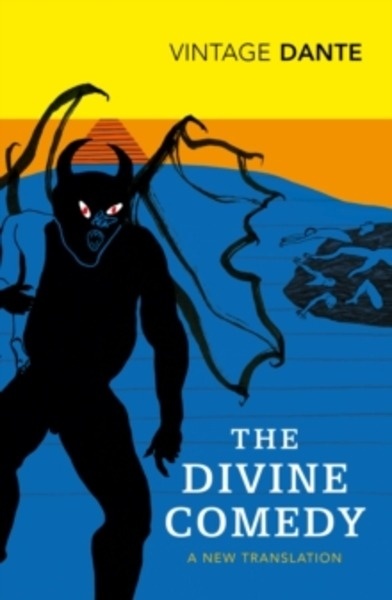The Divine Comedy

Editorial Vintage UK
Fecha de edición mayo 2019 · Edición nº 1
Idioma inglés
EAN 9781784871987
624 páginas
Libro
encuadernado en tapa blanda
Resumen del libro
Halfway through life, you find yourself lost, unsure of the right path. Greed, deception and pride have led you away from the ideals and dreams you cherished in younger days. How do you go on?This is the starting point of one of the most extraordinary and important journeys in western literature, a stunningly ambitious flight of imagination and philosophy which has reverberated down the years since Dante Alighieri first wrote it down in the fourteenth century.
The Divine Comedy is a vision of the afterlife, the three regions of Hell, Purgatory and Paradise, through which the narrator must journey in order to better understand the workings of the universe, the love of God, and his place in the world. Poet and translator Steve Ellis translated the Inferno in 1994, and it was greeted with great acclaim. Now Ellis's translation of the entire poem is published here for the first time, and Dante's epic can be experienced afresh and in new glorious life and colour, the physicality and immediacy of Dante's verse rendered in English as never before.
Biografía del autor
x{0026}lt;P x{0026}lt;B Dante Alighierix{0026}lt;/B nació en Florencia en 1265, en el seno de una familia noble empobrecida. Su formación se enmarcarcó en la tradición de la época, por lo que probablemente estudió en la Universidad de Bolonia. Conoció por primera vez a Beatrice Portinari en 1274, y a su muerte en 1290, el joven poeta stilnovista buscó refugio en el estudio de la filosofía y la teología, y escribiendo la x{0026}lt;I Vita Nuovax{0026}lt;/I . En esta época se involucró en la disputa entre güelfos y gibelinos, partidarios del Papa y del Emperador, respectivamente. Dante llegó a ser un importante güelfo blanco -defendían la indenpendencia tanto del poder papal como del imperial-, de modo que cuando los negros tomaron el poder en Florencia en 1302, Dante fue condenado al exilio, aprovechando su ausencia de la ciudad. Primero se refugió en Verona y, tras residir en numerosas ciudades -algunos dicen que París o incluso Oxford-, se estableció finalmente en Rávena, donde completó la escritura de su gran obra, la x{0026}lt;I Divina Comediax{0026}lt;/I . Dante murió en Rávena, al volver de una misión diplomática en Venecia, en 1321.x{0026}lt;/P








